Your street: Waiting for a disaster in Scarlet St, Mordialloc
THIS week in Your Street we visit Scarlet St, Mordialloc, where residents are concerned about crashing planes. Have your say.
VIC News
Don't miss out on the headlines from VIC News. Followed categories will be added to My News.
MORDIALLOC mother Andrea was cleaning out her shed the day in August a single-engine Cessna crashed into the backyard of a house just around the corner.
“It came in about 10 foot above the roof,” she said.
“The engine was spluttering. I looked up and said to my daughter, ‘That doesn’t sound good’. A short time later we heard sirens and saw helicopters hovering around and realised something bad had happened.”
The four-seater plane clipped the roof of one house about 3.30pm on a Saturday and brought down powerlines before landing in the backyard of the next house, ending up against a wall between the house and a swimming pool.
The 27-year-old pilot and passenger escaped uninjured.
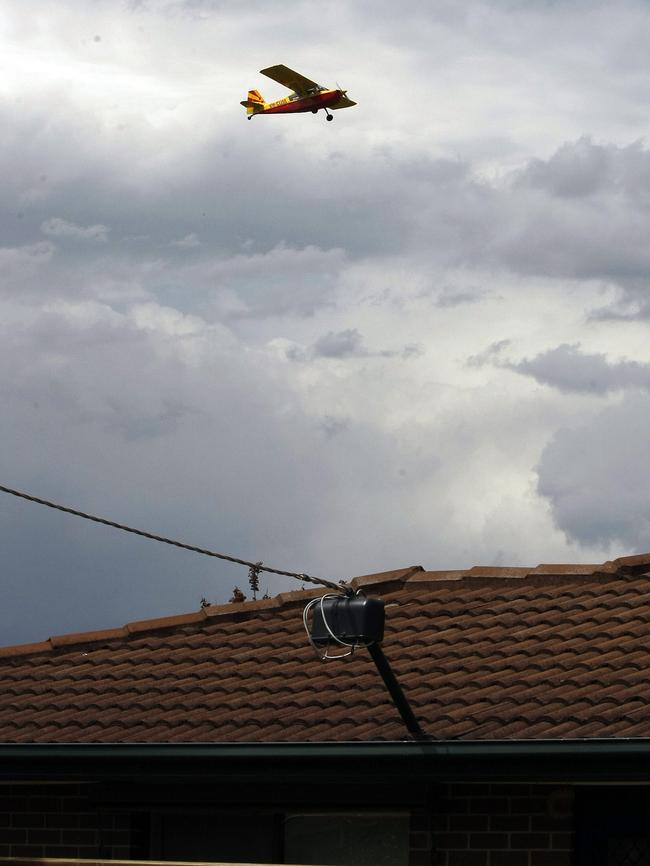
The passenger on the charter flight said the engine surged, then lost power as they returned to Moorabbin Airport.
Three weeks ago Andrea, who did not want her surname used, was chilled when she heard the engine of another plane fail as it flew overhead.
“I was inside when I heard it,” she said. “I ran outside and had a look and by that time the engine was going again.”
To residents of Scarlet St, which joins Lower Dandenong Rd just metres from the southern end of one of the airport’s runways, the sound of light aircraft forms part of the soundtrack of daily life.
At busy times, planes take off from the multiple runways almost simultaneously and often just a couple of minutes apart. For variety, helicopters take off, hover and land as trainee pilots practise their skills.
Most have gained a respectable height before they pass over homes, but not all. Andrea said she had seen some just clear some big gum trees nearby.
But the altitude of the planes does not make much difference to the noise: when flying that low, the sound is like a tractor or semi-trailer roaring past a house.
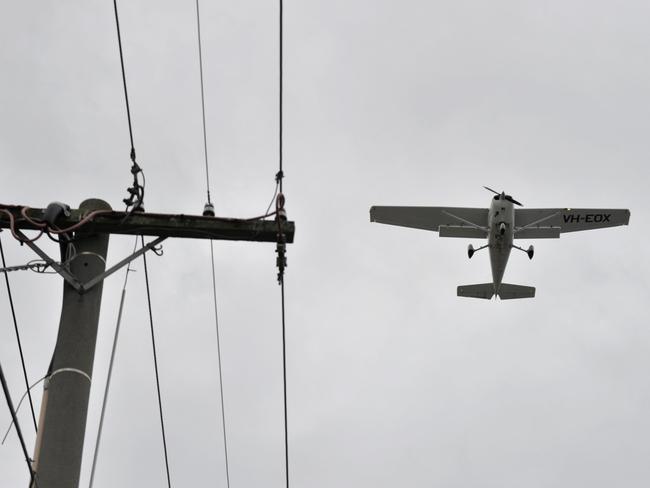
“We have to shut the doors in summer,” Andrea said. “It’s near impossible to sit outside because you have to stop talking whenever they fly overhead. The more beautiful the day, the more planes are flying.”
The family bought their home only two years ago after being outbid at auctions every weekend for six months.
“We were seeing the same people at every auction,” she said.
“This place had been on the market for two days and we grabbed it. We looked at lots of houses around Mordialloc, but the noise from the airport didn’t seem so bad — though there was one auction we went to around the corner where a plane came in so low you could see every bolt on it. We stopped bidding and walked away.”
Tom Uren, who still lives in the home he built in 1950, said the shock for new buyers was not uncommon.
“People always say, ‘Well why did you buy here? The airport was here first’, and it’s a valid point,” he said.
“The problem is that light aircraft are very sensitive to wind conditions.
“The direction they take off and land depends entirely on which way the wind’s blowing, so you could visit a street four times in a month and not see an aircraft. I can understand how home buyers can look at properties around here and not be aware of the noise problem.”
Mr Uren is president of the Moorabbin Airport Residents Association, formed as an action group 14 years ago to fight plans to upgrade the airport for use by 100-seat interstate passenger flights.
He said the association was worried at the prospect that the number of “aircraft movements” (each landing and takeoff is defined as a movement) by training aircraft could rise from 350,000 a year to 500,000.
It has begged the Federal Government to cap the number of flights at present levels.
He said it was a concern that 70 per cent of aircraft using Moorabbin were at least 35 years old, adding to noise problems and the risk of malfunction, and “frightening” that pilots as young as 16 were flying solo above local homes.
“I can’t help but feel that at some time in the future there will be a real disaster — a sizeable aircraft will end up on a house or a number of houses near the airport,” he said.
Andrea expressed the same fear: “It’s just a matter of time,” she said.
“There seem to be more flights now than when we moved in. The area has become too populated for the airport to be used so much. I hope that in time they’ll close it down. If there were no planes, this would be the perfect suburb.”
Not all neighbours share her view. Many residents told the Sunday Herald Sun they had no real fears of another crash and accepted the noise in the same way as people living near a railway line.
Mr Uren said there were regulations governing flight paths and altitudes, but it was almost impossible to enforce them or prove breaches.
“I think we’re stuck with the airport, it’s not going to close,” he said.
“But it would be nice if we could get the message to pilots that there are people who live down here. Anything they did to improve safety and create less disturbance would be a good thing.”
SHARNA BROADBENT
SHARNA Broadbent says husband Tim is obsessed with aviation and has passed that love on to his two sons, who spend time gazing at the planes flying just above their roof as they take off and land at nearby Moorabbin Airport.
The flight path from one of the runways takes planes in almost a direct line down the northern end of Scarlet St.
Mrs Broadbent said her husband was the first person on the scene after a Cessna crashed into a house on Lower Dandenong Rd in August.
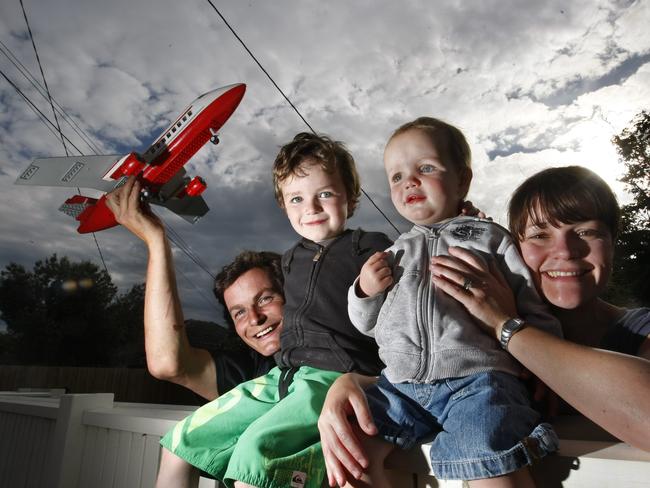
He helped pull the pilot and passenger from the aircraft. Mr Broadbent, an arborist, had been trimming trees at a property across the road from where the plane went down.
Mrs Broadbent said the danger of air crashes did not concern her.
“I think the people most concerned about the airport don’t live in this street,” she said. “The noise doesn’t bother us.”
Let’s cut the waste
ANDREW REDMOND
VICTORIA’S Government should be run by people with more experience at operating a business, says veterinarian Andrew Redmond.
He said many of the principles involved in running a business successfully also applied to managing a state — and the results of the Bracks and Brumby governments showed that Labor lacked the necessary skills.
“I see excessive wastage,’’ Mr Redmond said. “You have disasters like myki and the desalination plant, an army of spin doctors trying to make the Government look good, millions being spent on junkets, and after all that there’s precious little to spend on things like ambulance services and disabled services.
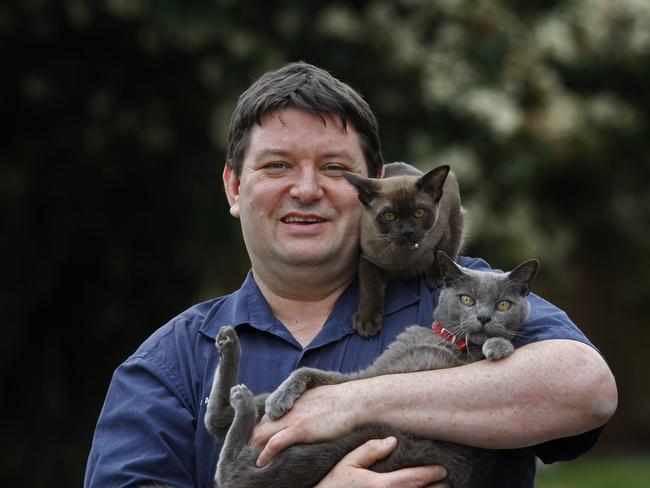
“For all the money they spent on getting myki going, they could have created a transport system where everyone could ride for free.
“We’ve given Bracks and Brumby a chance and they haven’t done such a great job. It’s time to give someone else a go.’’
He said his industry had undergone huge change in recent decades.
“Pets have moved out of the back yard into the family,’’ he said. “People have much higher expectations for treatment of their pets now.
“There are specialists in veterinarian treatment and we’re using equipment like MRIs and CTs. It’s a whole different level of service to what we gave 20 years ago.’’
But, he said, it came at a cost that sometimes surprised.
“The equipment is very expensive and we have to pay for it, so our charges reflect that. The problem is people go to the doctor and pay a minimal fee, because it’s subsidised by the Government. There’s no subsidy for a vet,’’ he
said.
DARREN and KARINDA CHAPMAN
AFTER 10 years in Chelsea Heights, Darren and Karinda Chapman decided Mordialloc was a good spot to move to, in order to be nearer to the city.
“Mordialloc’s great,’’ Mr Chapman said.
“It’s an up-and-coming area. We have a nice big block, which is what we wanted because we’re going to extend. Part of the reason we bought here was that the price was more affordable, because it was close to the airport.’’
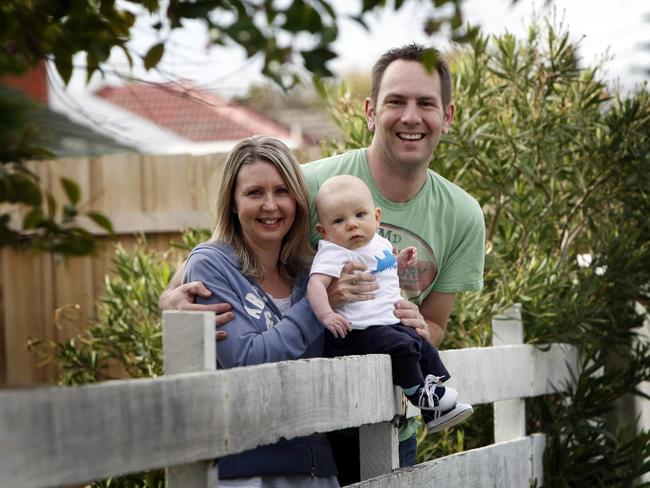
That has its downside, however, with the noise from overhead planes, though he said he had become used to it and finds he is not too bothered.
“I knew there would be noise, though I was surprised by how frequent the planes are,’’ he said. “When it really becomes a bit much is if it’s a nice weekend, when there are more planes around.
“It can be annoying if you’ve got people over and you want to be outside.’’
Is he concerned about the possibility of another crash?
“It’s a little bit of a concern,’’ he said. “I guess the main worry is that there has to be a fatality before anything is done about fixing the problem.’’
The couple were elated with the birth of son Benjamin five months ago. The couple joined an IVF program after 10 years of trying to conceive.
“After what was to be our final cycle of IVF treatment, we found out Karinda was pregnant,’’ Mr Chapman said.
“Benjamin is our little miracle.’’
ROBERT FOX
TEN years after being diagnosed with cardiomyopathy and being told he would need a heart transplant, Robert Fox feels as healthy as ever.
He took matters in his hands when he heard the news, starting a daily regimen of a 10km walk, though that led to tendonitis in one leg, forcing him to cut back walks to every second day.
To assist him with his heart condition, doctors have inserted a defibrillator in his chest to automatically deliver an electric shock to restart his heart in an emergency.
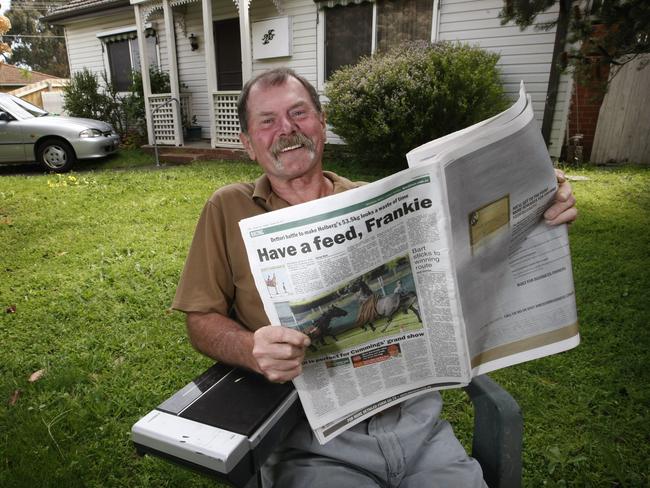
The device constantly monitors his heart and staff at The Alfred hospital have given him some surprising news when they have downloaded the results.
“I’ve had four separate heart attacks since I’ve been fitted with it,’’ he said. “But I didn’t know about any of them. I go into The Alfred every six months and they’ve looked at the data and said, ‘Did you realise you’ve had a couple of heart attacks since we saw you last?’
“They told me I probably slept through them all.’’
Mr Fox is a former boilermaker who kept on the move throughout his career, living just a few years in Perth, Darwin, Townsville, Tasmania and other far-flung spots before moving on.
“I wanted to get around the whole country,’’ he said.
In the end he returned to his family home in Scarlet St, to where he first moved when he was 10.
“My family moved here 50 years ago,’’ he said. “I like the area and it’s better now than it was. All the families have moved in, with all the kids. It really brings the place alive.’’
The airport is a lot busier as well, he said, though he had no concerns about noise or safety.
“It can get annoying, but you get used to it,’’ he said. “It’s always the way that when there’s something interesting on TV you want to hear, that’s when a plane goes over and you miss it.’’
OLIVE LIEBELT
“YEARS ago I would have said, ‘Fancy coming here to live’. I’d have thought Mordialloc was the pits,’’ chuckles pensioner Olive Liebelt.
She and husband Helmut had lived in Glen Iris and later moved out to Lilydale. They had moved so many times in their life, she said, “I feel a bit like a gypsy’’.
When their son built a home in Mordialloc, they realised how close it was to shopping, transport and the city.
“Lilydale is a long way out,’’ Mrs Liebelt said. “It’s much better here. And I don’t want to move again.’’
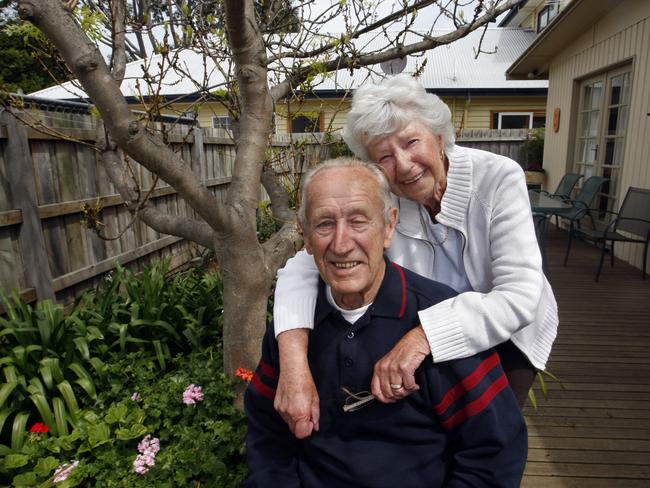
Her home is one of the closest in the street to Moorabbin Airport.
Mrs Liebelt said the noise was a nuisance if she was outside, but otherwise it did not bother her.
“Once you’re inside, you don’t hear it,’’ she said. “I heard about the plane crashing into the house around the corner, but that doesn’t worry me.
“If your number’s up, it’s up. I mean, you can get hit by a car crossing the street as well, so why worry about a plane crashing? It would probably put some buyers off if they were looking for homes, but it’s not on my mind at all.’’


